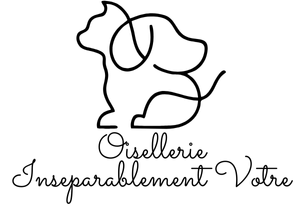Monitoring shell health in Hermann's tortoises isn't just important for their appearance—it's vital for their overall well-being. Shell conditions can reflect underlying health issues, making regular assessments necessary for prevention and care. This guide will explore the significance of shell health monitoring, providing essential insights into best practices and common challenges faced by tortoise owners. Understanding these factors is key to ensuring a healthy life for these fascinating reptiles. Don’t overlook the signs that can make all the difference in your pet’s health journey.
Importance of Shell Health Monitoring
Understanding the significance of shell health in Hermann's tortoises is crucial for their care. A tortoise's shell is not merely a protective barrier; it is integral to their overall health and well-being. The shell serves as a vital indicator of the tortoise's nutritional status and environmental conditions. Regular shell health monitoring can prevent severe health issues.
Sujet a lire : Enhancing Whippet Recall: Effective Strategies for Success in Open English Fields
Connection to Overall Well-being
Shell health is directly connected to a tortoise's overall well-being. A healthy shell often reflects proper nutrition and adequate exposure to sunlight, essential for vitamin D synthesis. Conversely, a deteriorating shell may indicate deficiencies or improper habitat conditions.
Regular checks can help in identifying early signs of metabolic bone disease, a common ailment in tortoises due to poor shell health.
Cela peut vous intéresser : Crafting a Customized Diet Plan for Your Diabetic Jack Russell Terrier: Essential Tips and Strategies
Consequences of Neglect
Neglecting shell health monitoring can lead to dire consequences. Without regular assessment, minor issues can escalate into severe problems, such as shell rot or deformities, which are difficult to treat.
- Key Consequences:
- Increased risk of infections
- Potential for chronic pain
- Reduced lifespan
By prioritizing shell health, caretakers ensure that Hermann's tortoises thrive, promoting longevity and quality of life. Regular monitoring is not just a preventive measure but a fundamental aspect of responsible tortoise care.
Common Signs of Shell Issues
Identifying shell problems early can significantly improve a tortoise's health outcomes.
Visible Shell Abnormalities
Regular inspections are crucial for spotting shell problems. Look for cracks, discoloration, or uneven growth patterns. These could signal underlying health issues. A tortoise health indicator is the shell's texture; a smooth, hard shell typically denotes good health, while a soft or flaky shell suggests potential problems.
Behavioral Signs
Behavioral changes can also indicate shell discomfort. If a tortoise is less active, refuses to eat, or withdraws into its shell more than usual, it may be experiencing shell problems. These signs should prompt immediate attention and possibly a visit to a veterinarian.
Importance of Regular Inspections
Regular visual inspections are vital. They help catch tortoise health indicators early, preventing minor problems from escalating.
- Checklist for Shell Monitoring:
- Inspect for cracks or discoloration
- Check for softness or flakiness
- Observe changes in behavior
By understanding and recognizing these shell problems, caretakers can ensure their tortoises remain healthy and comfortable. Regular monitoring not only addresses current issues but also acts as a preventive measure against future shell discomfort.
Techniques for Monitoring Shell Health
Understanding shell health assessment is essential for the well-being of Hermann's tortoises. Implementing effective monitoring methods ensures timely identification of potential issues.
Best Practices for Visual Shell Assessments
Visual inspections are a cornerstone of shell health assessment. Regularly examine the shell for signs of cracks, discoloration, or unusual growth patterns. These indicators can reveal underlying health problems. Ensure the shell is smooth and hard, as softness may signal deficiencies.
Tools and Resources for Effective Monitoring
To enhance your monitoring methods, consider using a soft brush to clean the shell gently, revealing any hidden issues. A magnifying glass can aid in spotting minor abnormalities. Keeping a journal of observations can track changes over time, providing valuable insights for your shell health assessment.
Frequency and Timing of Health Check-Ups
Regular check-ups are crucial. Establish a routine to conduct shell health assessments at least once a month. More frequent checks may be necessary during periods of growth or environmental changes. Consistent monitoring methods help catch issues early, ensuring your tortoise remains healthy.
- Checklist for Effective Monitoring:
- Use a soft brush and magnifying glass
- Maintain a journal of observations
- Schedule monthly assessments
These monitoring methods not only safeguard your tortoise's health but also contribute to a deeper understanding of their needs.
Implications of Shell Health on Overall Tortoise Health
Understanding the intricate link between shell condition and tortoise health implications is vital for caretakers. A tortoise's shell is more than a shield; it's a barometer of their metabolic functions. Proper shell integrity supports efficient calcium metabolism, crucial for bone health and growth.
Metabolic Functions and Shell Health
Shell condition effects directly influence metabolic activities. A well-maintained shell ensures optimal vitamin D synthesis, necessary for calcium absorption. Poor shell health can disrupt these processes, leading to metabolic bone disease.
- Key Metabolic Functions:
- Calcium metabolism
- Vitamin D synthesis
- Bone health maintenance
Disease Susceptibility and Shell Integrity
The relationship between shell integrity and disease susceptibility is significant. A compromised shell increases vulnerability to infections and parasites. This susceptibility can result in chronic health problems if left untreated.
Long-term Effects of Untreated Shell Issues
Ignoring shell condition effects can have lasting consequences. Over time, untreated shell problems can lead to irreversible damage and reduced lifespan. Regular monitoring and timely interventions are essential to mitigate these risks.
By recognizing the tortoise health implications of shell health, caretakers can take proactive steps to ensure their tortoises remain robust and resilient.
Expert Opinions and Research Insights
Exploring the latest in veterinary insights and tortoise health research.
Summary of Expert Recommendations
Veterinary insights emphasize the importance of shell care as integral to tortoise health. Experts recommend regular inspections and a balanced diet rich in calcium and vitamin D. Proper habitat conditions, including UV light exposure, are crucial for maintaining shell integrity.
"A tortoise's shell is a living part of its body, requiring careful attention and care," says Dr. Emily Grant, a leading herpetologist.
Review of Recent Studies
Recent tortoise health research highlights the connection between shell care and overall well-being. Studies reveal that Hermann's tortoises with optimal shell conditions exhibit better growth rates and fewer health issues. Research also indicates that early intervention in shell abnormalities can prevent severe ailments.
Analysis of Case Studies
Case studies underscore the significance of shell care in tortoise longevity. In one instance, a tortoise with neglected shell health developed severe bone disease, illustrating the consequences of inadequate care. Conversely, tortoises receiving regular veterinary insights and following recommended practices showed remarkable resilience and vitality.
- Key Takeaways:
- Regular inspections and dietary management
- Importance of UV light exposure
- Early intervention in shell abnormalities
These findings reinforce the critical role of tortoise health research in guiding effective care strategies.
Practical Care Tips for Shell Health
Caring for Hermann's tortoises requires attention to several key factors.
Dietary Considerations for Optimal Shell Health
A balanced diet is fundamental for tortoise care. Ensure your tortoise receives enough calcium and vitamin D, which are crucial for shell maintenance. Foods like leafy greens and calcium supplements can support shell health.
"A varied diet rich in essential nutrients is key to a healthy shell," advises Dr. John Smith, a reptile nutritionist.
Environmental Factors Affecting Shell Condition
Proper habitat conditions are vital for shell maintenance. Hermann's tortoises need access to UVB light, which aids in vitamin D synthesis, essential for shell health. Maintain a warm and humid environment to prevent shell issues.
- Environmental Essentials:
- UVB light exposure
- Temperature control
- Humidity management
Routine Care Practices to Promote Shell Health
Regular tortoise care tips include routine cleaning and inspections. Gently clean the shell with a soft brush to remove debris and monitor for changes. Establish a schedule for shell maintenance checks to catch potential problems early.
Integrating these tortoise care tips into your routine ensures your pet's shell remains strong and healthy, contributing to their overall well-being.
Resources for Further Learning
Expand your knowledge with these comprehensive tortoise care resources.
Recommended Books and Articles
For those keen on deepening their understanding of shell health education, several books and articles provide valuable insights. "The Tortoise and Turtle Care Manual" is a comprehensive guide covering all aspects of tortoise care. Additionally, articles in journals like "Herpetological Review" often feature studies on shell health.
Online Forums and Communities
Engaging with online communities can be an excellent way to share experiences and gain advice on tortoise care resources. Forums such as Tortoise Forum and Reptile Boards offer platforms for owners to discuss shell health education and other care practices. These communities are invaluable for both novice and experienced caretakers seeking peer support.
Veterinary Resources for Shell Health Consultations
Consulting with a veterinarian is crucial for addressing specific shell health concerns. Many veterinary clinics provide specialized tortoise care resources, including consultations focused on shell health education. Regular veterinary check-ups ensure your tortoise receives expert care tailored to its needs.
- Key Resources:
- Books: "The Tortoise and Turtle Care Manual"
- Online Forums: Tortoise Forum, Reptile Boards
- Veterinary Consultations: Specialized shell health services
These tortoise care resources are essential for maintaining your pet's health and well-being.











